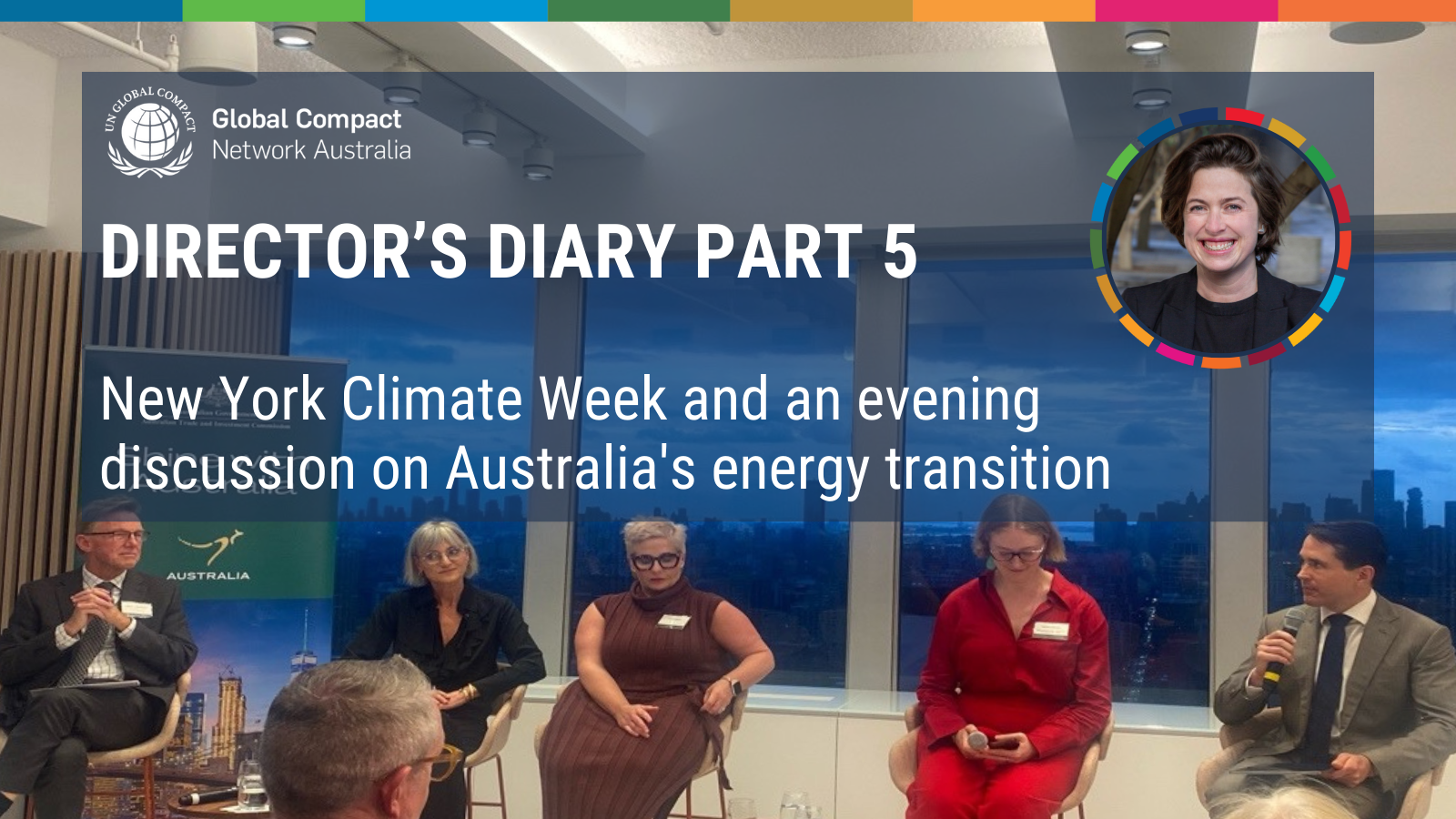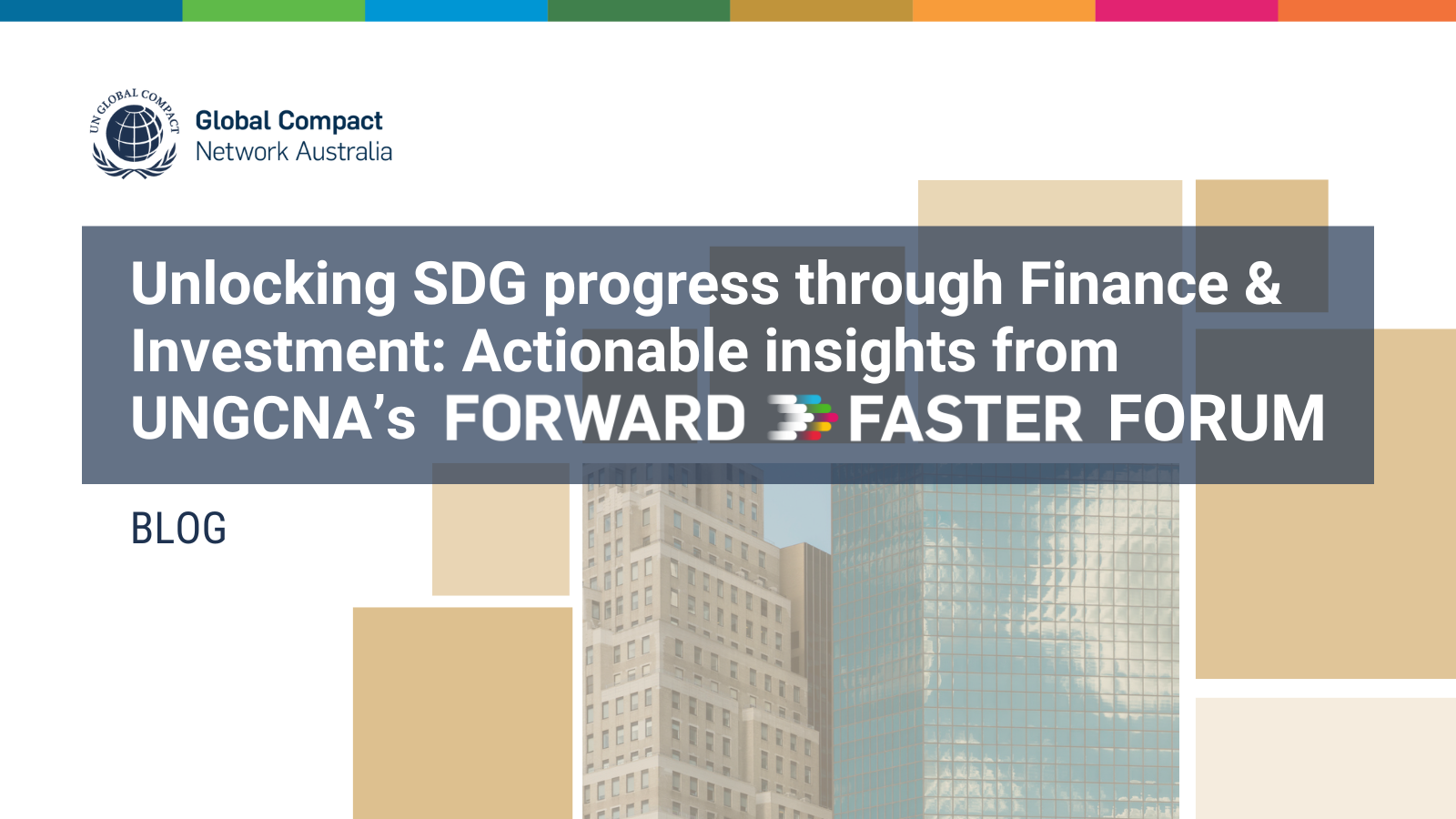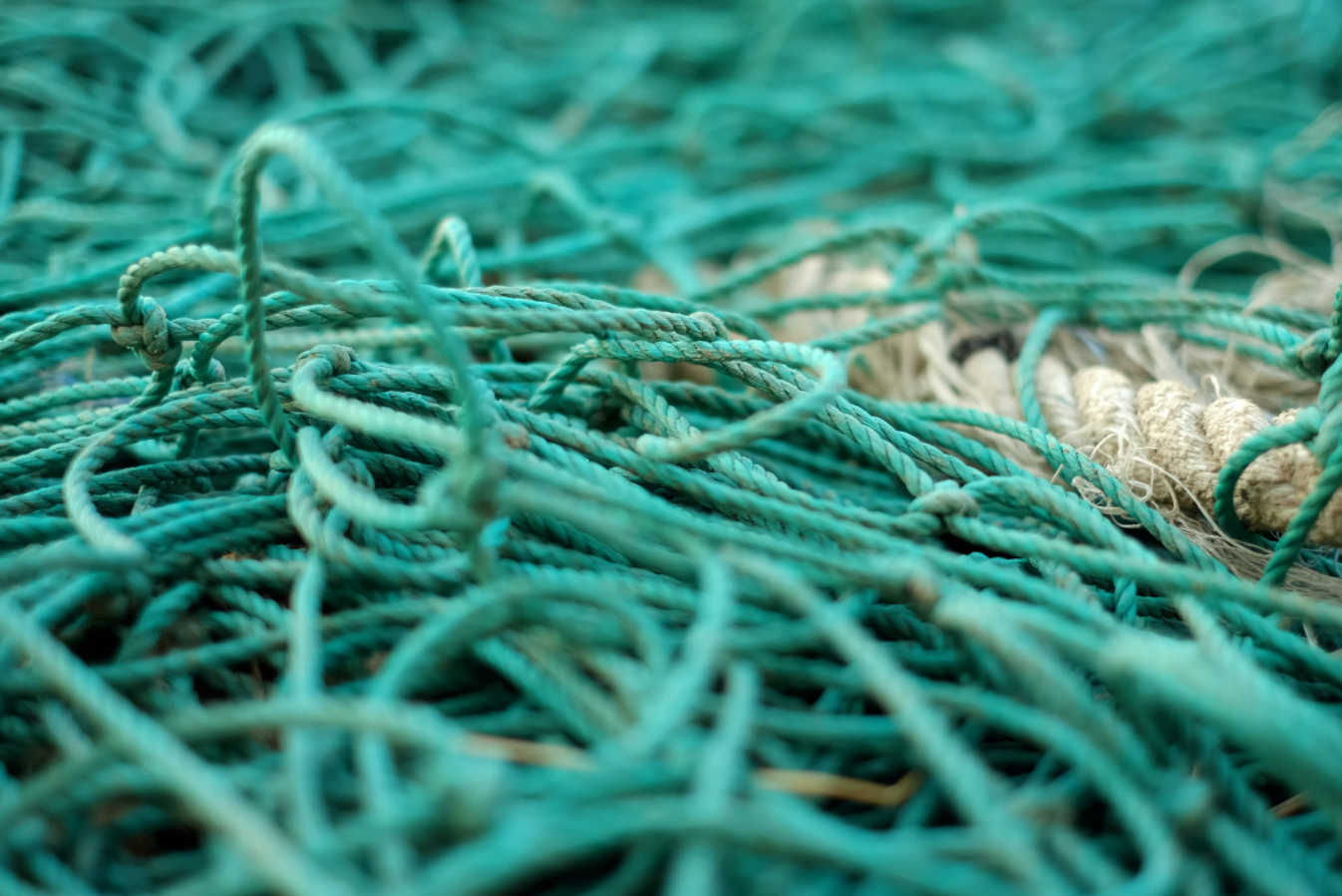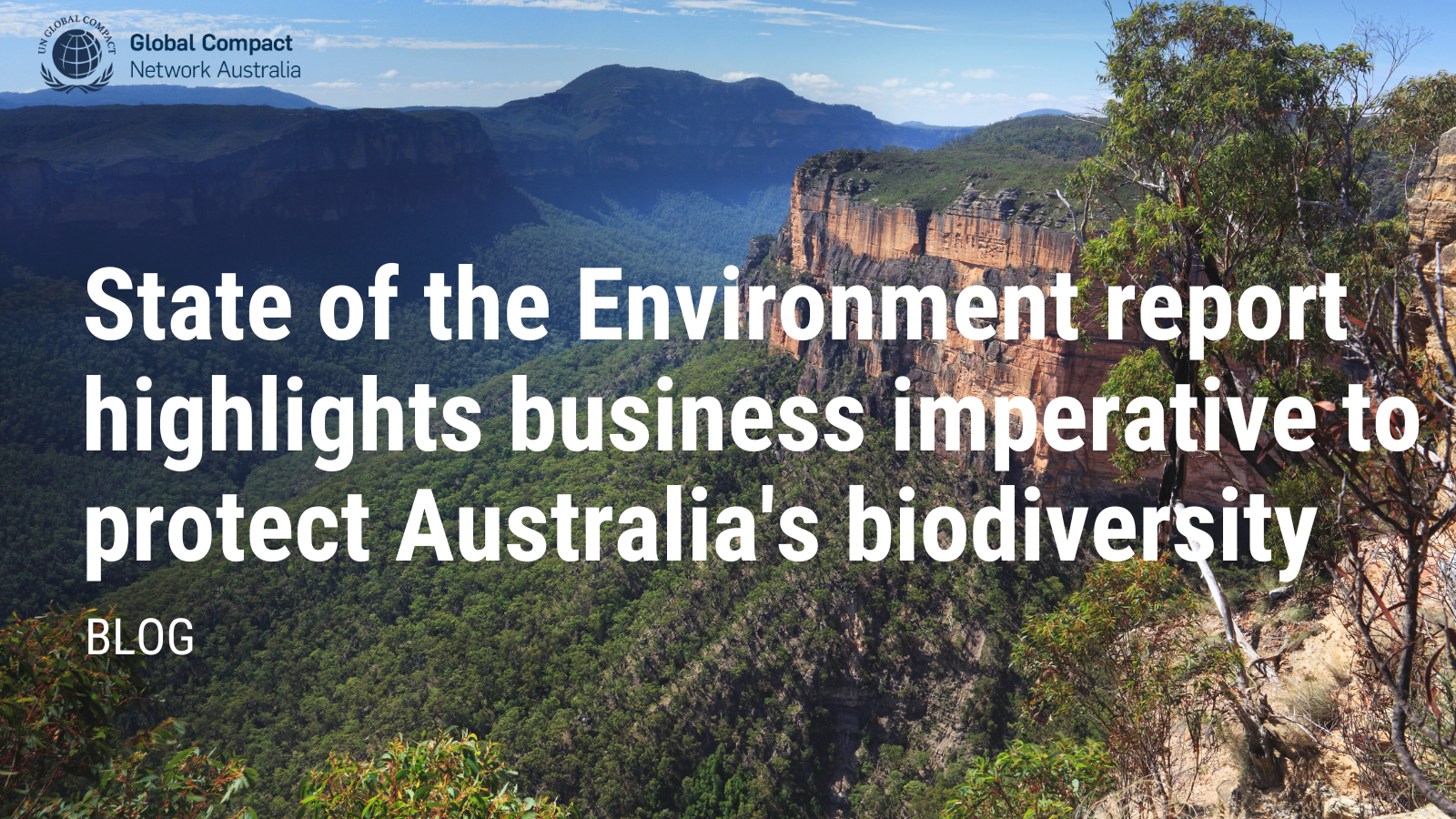
Blogs, News, Sustainable Development Goals
Director’s Diary part 5: New York Climate Week and an evening discussion on Australia’s energy transition
Kate Dundas | October 1, 2024
As part of New York Climate Week, the Australian Trade and Investment Commission and the American Australian Association hosted an event discussing Australia’s energy transition.
At the event, we heard from leading experts on Australia’s net zero strategy and the investment opportunities that will underpin Australia’s green future, addresssing Australia’s net zero initiatives and investment opportunities.
Speakers included:
🍃 The Hon Dr Kevin Rudd AC – Australia’s Ambassador to the United States of America
🍃Jennifer Diggins – Vice President at 8 Rivers
🍃 Patty Akopiantz – Director at Sea Forest
🍃 Amanda Wormald – Counsellor, Climate and Energy at the Department of Climate Change Energy Environment and Water
🍃 Professor John Thwaites – Chair, Australian Government’s Circular Economy Ministerial Advisory Group, Chair, Monash University Sustainable Development Institute, Chair, Climateworks Centre
Australia stands at a unique crossroads as the global race towards net-zero intensifies. During a recent discussion, Ambassador Rudd emphasised how legislative action can truly drive change, particularly when it comes to renewable energy targets. With its rolling investment fund, Australia’s Clean Energy Finance Corporation has created a strong pipeline of investable projects, ensuring a future powered by clean energy.
Rudd highlighted the transformative impact of government incentives. During the financial crisis, significant subsidies helped put solar panels on over 1 million rooftops—today, 30% of Australian homes benefit from solar energy. Australia’s natural endowment of critical minerals like lithium and nickel puts us in a strong position to support the global energy transition. As Rudd noted, “Australia equals the periodic table.” With growing global demand for these minerals, the Critical Minerals and Clean Energy Compact—signed by Modi, Kishida, Biden, and Albanese—positions Australia as a key player in this transition.
The legislative landscape is now clear: Australia has moved from having zero renewable energy targets to achieving 30% renewables, opening new opportunities across the sector.
On the panel, Amanda Wormald underscored Australia’s role as a national hydrogen strategy leader and energy exporter, particularly in battery components and grid-scale batteries. She highlighted the importance of diversified, resilient supply chains, alongside policy frameworks like the Guarantee of Origin Scheme for low-emissions goods and the Safeguard Mechanism. Wormald also touched on key workforce initiatives, from apprenticeships to capacity investment schemes designed to build a future-ready workforce for the energy transition.
Patty Akopianyz drew attention to agricultural methane emissions and the innovative potential of solutions like Sea Forest. At the same time, John Thwaites spoke on the impact of circular economy (CE) practices, which could cut emissions by 24% by 2030 across all sectors. Whether it’s extracting valuable minerals from mining waste or repurposing food waste into alternative proteins, circular approaches are critical.
However, challenges remain. The transition requires accelerating action, particularly in securing social licenses for large-scale projects like the energy grid. Thwaites emphasized that this is a whole-of-system challenge, not just for farmers. We also need regulatory certainty that transcends political cycles, reliable, clean supply chains, and stronger international relationships.
In Australia, the future of energy lies in innovation, robust policy, and global partnerships—and we’re just getting started.
Our Executive Director Kate Dundas is attending the 79th session of the United Nations General Assembly 🌍
During her 10-day trip to New York, Kate will participate in a variety of engaging events, from the Summit of the Future and Leaders Summit to roundtables and sessions focused on progressing the SDGs.
Don’t miss out on her Director’s Diary Series – live from New York to your inbox and social media feeds!



